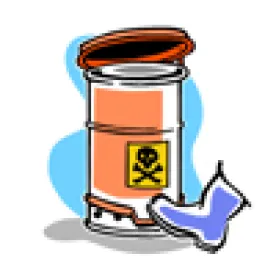In a recently updated directive to Regional Administrators and State Plan Designees from Dr. David Michaels, Assistant Secretary of Labor for OSHA, the categories of small businesses exempt from programmed health and safety inspections changed.
This exemption applies to workplaces with 10 or fewer workers who perform work in industries OSHA deems low hazard. OSHA identifies low hazard industries by studying the most recent results of mandatory surveys sent to employers in countless industries by the Bureau of Labor Statistics which collect information about how often employees were unable to perform their normal job duties because of workplace injuries or illnesses. Those industries with the lowest numbers are included in the list.
The change to the list became effective on January 29, 2016, and will remain in effect until updated, which typically happens at the beginning of each year.
Newly Exempt Industries
There are over 400 industries included in the list of exempt small businesses. Among the industries newly exempt from inspections are:
-
Electrical contractors and wiring installation contractors
-
Soybean and other oilseed processing
-
Inorganic chemical manufacturing
-
A number of retail industries including boat dealers, motorcycle dealers, floor covering stores, electronics stores, meat markets, fish and seafood markets, tobacco stores and vending machines
-
Farm product warehousing and storing
-
Residential and Nonresidential property managers
-
Marinas
-
Full-service restaurants, cafeterias, buffets and snack bars
Industries No Longer Exempt
Many of the industries deemed exempt in the last revision of this list no longer enjoy an exemption from inspections. A sampling of the industries no longer included in the list includes:
-
Heavy and civil engineering construction
-
Retail bakeries
-
Industrial gas manufacturing
-
Medicinal and botanical manufacturing
-
Retailers including RV dealers, household appliance stores, all manner of electronics and computer stores, paint and wallpaper stores, fruit and vegetable markets, and beer, wine and liquor stores
-
Investment and securities dealing, securities brokerage, commodity contracts dealing, and commodity contracts brokerage
-
Pension funds, health and welfare funds, and other insurance funds
-
Veterinary services
Employers should be mindful that even if they have 10 or fewer employees performing work in an exempt industry they are still at risk of an OSHA inspection if employees suffer a work-related fatality or severe injury (see related story) or an employee makes a complaint to OSHA.



 />i
/>i

